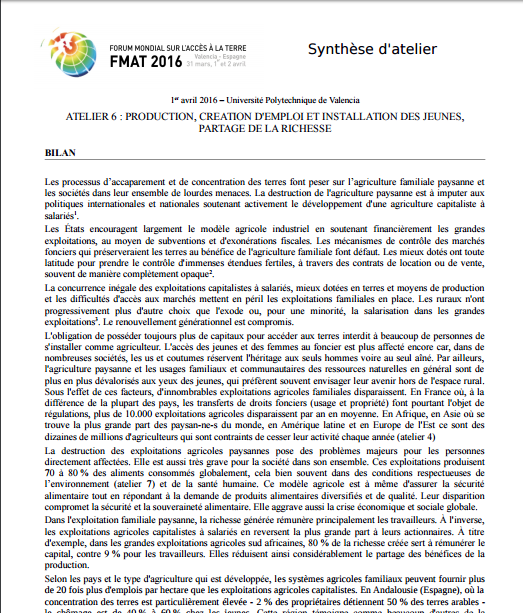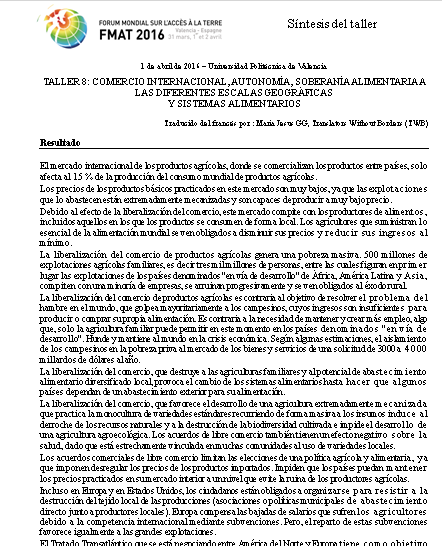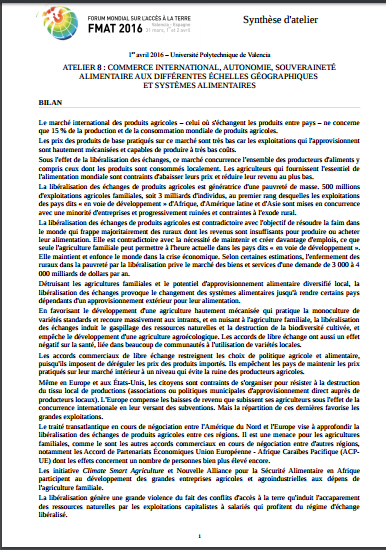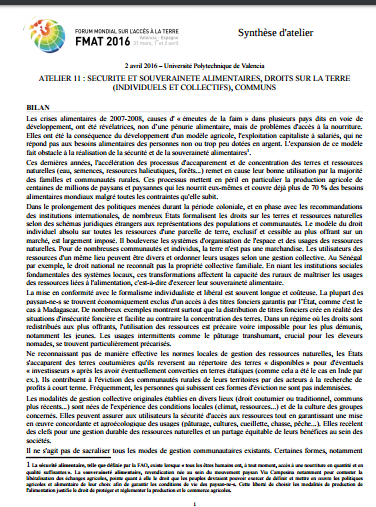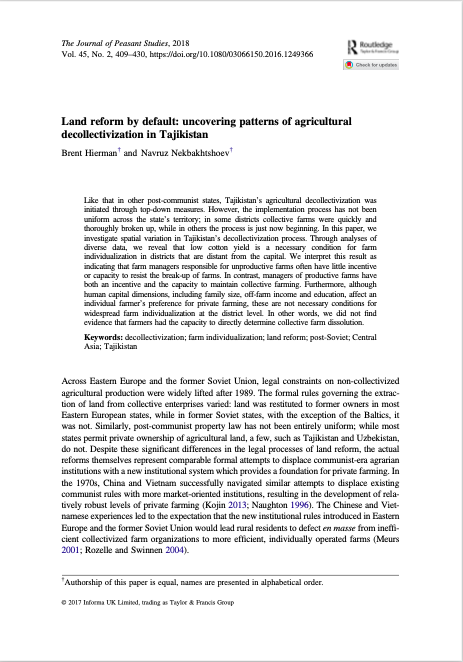ATELIER 6 : PRODUCTION, CREATION D’EMPLOI ET INSTALLATION DES JEUNES, PARTAGE DE LA RICHESSE
Les processus d’accaparement et de concentration des terres font peser sur l’agriculture familiale paysanne et les sociétés dans leur ensemble de lourdes menaces. La destruction de l’agriculture paysanne est à imputer aux politiques internationales et nationales soutenant activement le développement d’une agriculture capitaliste à salariés.

